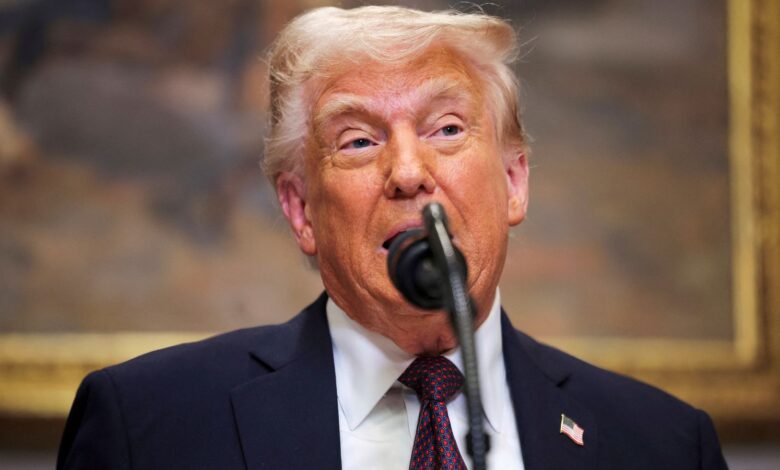Donald Trump brushes off Signal chat leak as ‘not really an FBI thing’ | World News

US President Donald Trump dismissed concerns over a leaked Signal chat in which national security officials from his adminration discussed attack plans, insing, “it’s not really an FBI thing,” the Associated Press reported.
Despite Trump’s assertion, the FBI and Justice Department have long been responsible for enforcing Espionage Act statutes that govern the mishandling—whether intentional or negligent—of national defense information. The Justice Department has broad discretion to open an investigation, but it remains unclear whether Attorney General Pam Bondi, a close Trump ally who introduced him at a Justice Department event this month, would authorise such an inquiry.
Patel questioned, but no commitment from FBI
FBI Director Kash Patel, who was not part of the Signal chat, was nonetheless questioned lawmakers this week about whether the agency would investigate the matter. During two days of Senate and House hearings, Patel testified that he had not personally reviewed the messages, which were inadvertently shared with The Atlantic’s editor-in-chief after being makenly included in the unclassified chat.
Story continues below this ad
That Patel was pressed on what the FBI might do was unsurprising, given the agency’s hory of handling such cases.
While Trump adminration officials maintain that the information shared was not classified, the Espionage Act criminalizes mishandling of any closely held national defense information, even if it is not explicitly classified.
Precedents and investigations
Over the years, multiple high-profile figures have faced scrutiny for their handling of government secrets, though the legal outcomes have varied.
Hillary Clinton: In a case with some parallels to the Signal chat leak, Clinton was investigated but not charged for using a private email server during her tenure as secretary of state. Then-FBI Director James Comey concluded in 2016 that Clinton had been “extremely careless” but did not recommend prosecution, citing a lack of intent to break the law. The decision was heavily criticized Republicans, including several figures involved in the Signal chat and Bondi herself at the 2016 Republican National Convention.
David Petraeus: The former CIA director pleaded guilty to a misdemeanor in 2015 after sharing classified information with his biographer and mress. Despite possessing “black books” containing sensitive intelligence, Petraeus received two years’ probation—a punishment some national security experts viewed as a double standard. Comey later criticized the leniency, arguing that an average citizen in similar circumstances would have faced a felony conviction and jail time.
Jeffrey Sterling: A former CIA officer, Sterling was convicted in 2015 for leaking details of a covert operation to a journal. He was sentenced to three and a half years in prison—a stark contrast to Petraeus’ plea deal.
With Trump downplaying the controversy, it remains uncertain whether the Justice Department will pursue an investigation.
(With inputs from AP)
© IE Online Media Services Pvt Ltd
Expand






